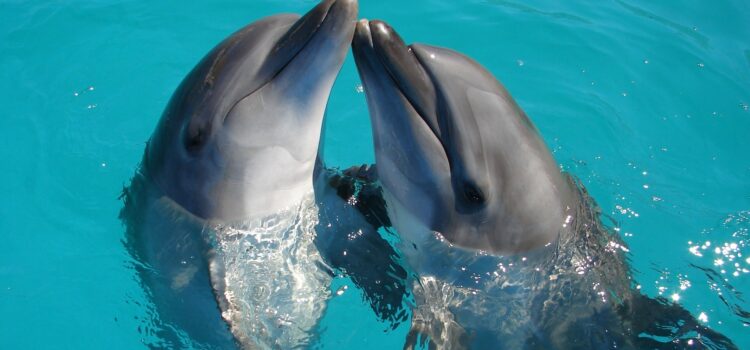

This article is an excerpt from the Shortform book guide to "Your Inner Fish" by Neil Shubin. Shortform has the world's best summaries and analyses of books you should be reading.
Like this article? Sign up for a free trial here .
Do dolphins smell? And what can a dolphin’s sense of smell tell us about human evolution?
“Do dolphins smell” is an interesting question, and a complicated one. While dolphins do have odor genes that allow them to smell, they don’t actually use their sense of smell.
So, do dolphins smell? Find out the answer below.
Do Dolphins Smell?
Do dolphins smell? It’s an interesting question. Humans, mammals, birds, reptiles, amphibians, and fish share the same basic system for detecting odors, which, like our other systems, has ancient origins. Drawing on both paleontology and DNA research, this chapter shows how we can trace our sense of smell to its start in primitive fish.
Clues from Dolphins and Primates
Dolphins and whales provide clues for why so many human odor genes don’t work. Because they’re mammals, dolphins and whales have the same large number of odor genes as do mammals that smell air molecules. But dolphins and whales don’t use their sense of smell—instead, they use their nasal passages for their breathing blowhole. None of their odor genes work. So, the dolphin’s sense of smell doesn’t really work.
Apparently, because dolphins and whales don’t use their sense of smell, their odor genes mutated over generations until they became useless. Nonetheless, the genes continue to be passed to the next generation, as can happen with mutations that aren’t harmful.
Humans have some nonworking odor genes because we traded smell for sight: we evolved to rely on vision more than smell for finding food and avoiding predators, so many of our olfactory genes lost their function.
Illustrating this, research shows that primates that developed color vision had large numbers of nonfunctioning smell genes, similar to a dolphin’s sense of smell.
Comparing olfactory systems shows how closely different animals are related because olfactory genes change the more they’re copied. The more alike two species’ odor genes are, the more closely they’re related. Our olfactory genes are most like those of primates, then mammals, reptiles, amphibians, and lastly, fish, including understanding dolphins’ sense of smell.
Now that you know the answer to “do dolphins smell?” you can think about dolphins as they relate to humans, as well as the many other interesting things about dolphins include dolphin’s sense of smell.

———End of Preview———
Like what you just read? Read the rest of the world's best book summary and analysis of Neil Shubin's "Your Inner Fish" at Shortform .
Here's what you'll find in our full Your Inner Fish summary :
- How your hands and feet are like a fish that lived hundreds of millions of years ago
- How the structure of your head can be traced back to an ancient, headless worms
- What parts of your body are uniquely human






